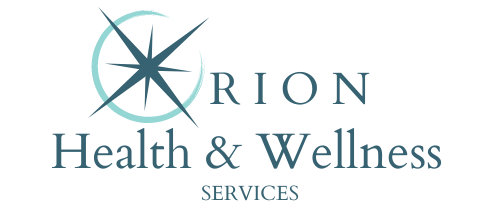Testosterone is a vital hormone that impacts many bodily functions, including reproductive health, muscle mass, and energy regulation. Produced mainly in the testes in men and the ovaries in women, it is essential for overall well-being. While it is commonly associated with male characteristics such as deep voice and increased muscle strength, it is just as important for women’s health.
Optimal testosterone levels help maintain balance in the body, supporting heart health, mental clarity, and physical endurance. As people age, testosterone levels naturally decline, leading to potential symptoms such as fatigue, reduced muscle mass, and mood changes. Low testosterone can affect various aspects of life, including sexual health, motivation, and cognitive function.
Understanding testosterone’s role in the body can help individuals make informed decisions about their health, especially when considering options like testosterone replacement therapy (TRT) to restore optimal levels and improve overall quality of life.
Key Takeaways
- Testosterone is a key hormone that helps with muscle growth, mood balance, energy, and sexual function in both men and women.
- Low testosterone levels can lead to symptoms like fatigue, low libido, weight gain, and trouble concentrating over time if left untreated.
- The hormone is made mainly in the testicles for men and in smaller amounts in women’s ovaries and adrenal glands.
- TRT (Testosterone Replacement Therapy) may be recommended by healthcare providers to restore healthy hormone levels in people with low testosterone.
- Testing and proper diagnosis by a licensed healthcare provider are essential before starting any treatment for low testosterone symptoms.
Table of Contents
Testosterone’s Role in Health: What You Need to Know
Definition and Role in the Body
Testosterone is a steroid hormone that belongs to the androgen group and is primarily produced in the testes in men and the ovaries in women, with a small amount also synthesized in the adrenal glands. It plays a significant role in developing male reproductive tissues such as the testes and prostate, as well as promoting secondary sexual characteristics like increased muscle and bone mass, deeper voice, and hair growth.
In both men and women, testosterone is crucial for overall well-being. It contributes to muscle strength, fat distribution, energy levels, and even mental clarity. This hormone also plays a role in red blood cell production, which can impact endurance and cardiovascular health.
While testosterone levels are generally higher in men, women also require balanced levels for proper body function.
How Testosterone is Produced
The production of testosterone is regulated by the hypothalamic-pituitary-gonadal (HPG) axis. The hypothalamus releases gonadotropin-releasing hormone (GnRH), signaling the pituitary gland to produce luteinizing hormone (LH). LH then stimulates the testes or ovaries to produce testosterone.
Testosterone exists in two main forms in the bloodstream: free testosterone (the active form that the body can use) and bound testosterone (attached to proteins such as sex hormone-binding globulin, SHBG). The balance between these two forms influences how the hormone functions in the body.
Effects of Testosterone on Health
Physical and Mental Benefits
Testosterone influences multiple aspects of health. Physically, it supports muscle growth, fat metabolism, and bone density. Higher levels of testosterone contribute to improved strength and endurance, while low levels can lead to muscle loss and increased body fat.
Mentally, testosterone plays a role in mood regulation and cognitive function. Low testosterone has been linked to symptoms of depression, brain fog, and decreased motivation. Maintaining optimal levels can support mental clarity, motivation, and overall emotional well-being.
Factors That Affect Testosterone Levels
Testosterone levels naturally decline with age, but lifestyle factors can also influence production. Poor diet, lack of exercise, stress, and inadequate sleep can contribute to lower levels. In contrast, regular exercise, a nutrient-rich diet, and stress management techniques can help maintain healthy testosterone levels.
Medical conditions such as obesity, diabetes, and chronic illnesses can also impact testosterone production. Understanding these factors can help individuals take proactive steps in maintaining their hormone balance.
Take Control of Your Testosterone Levels
Frequently Asked Questions
Aging, poor lifestyle choices, obesity, stress, and certain medical conditions can contribute to low testosterone levels.
Exercise, especially weight training, a protein-rich diet, quality sleep, and stress reduction can help increase testosterone levels.
Yes, women need testosterone for overall health, and low levels can lead to fatigue, mood swings, and reduced muscle strength.
Fatigue, weight gain, reduced muscle mass, mood swings, and decreased libido are common symptoms of low testosterone.
TRT is a medical treatment that restores testosterone levels through injections, patches, or gels.
When monitored by a doctor, TRT is generally safe, though it may have potential side effects like acne, fluid retention, or increased red blood cell production.
A blood test can measure testosterone levels, usually done in the morning when levels are highest.
Excessive testosterone can lead to aggression, acne, hair loss, and increased risk of heart disease.
Yes, low testosterone is linked to poor sleep quality and sleep apnea.
Yes, a diet rich in healthy fats, lean proteins, and essential vitamins can support testosterone production.

